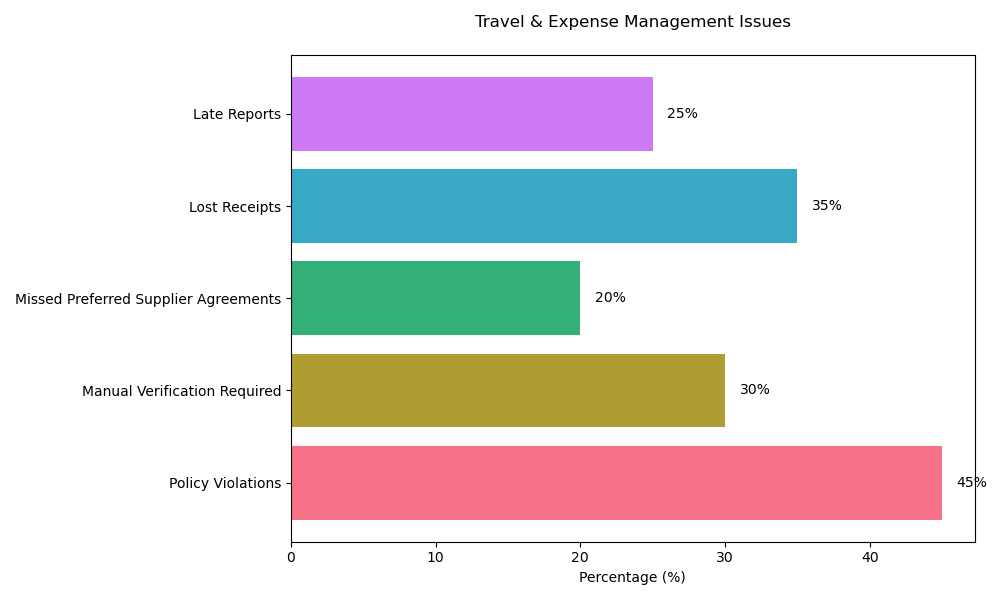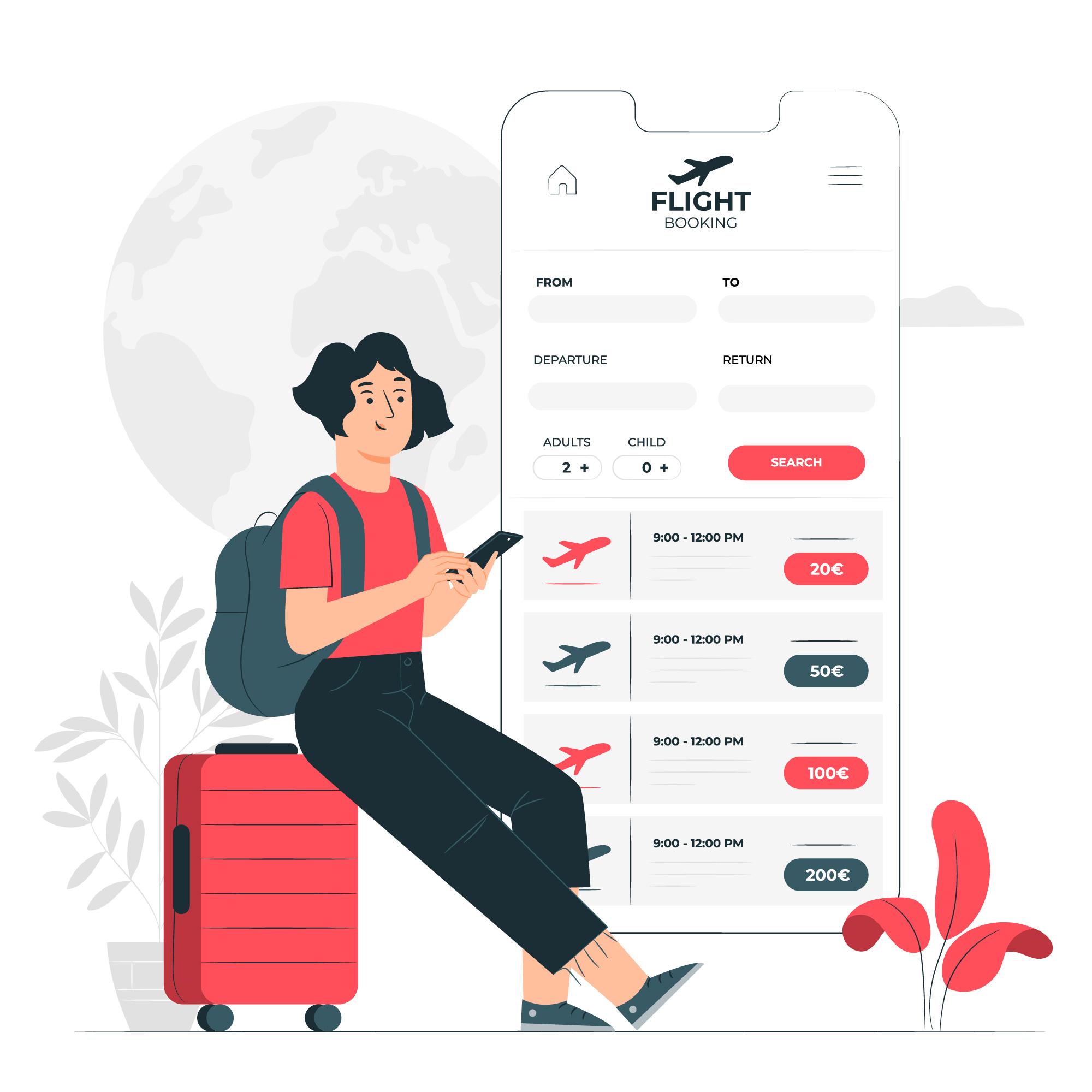Ever had a client call at 5 PM needing an urgent flight booking for their CEO?
Yeah, we’ve all been there.
The good news?
Modern travel booking doesn’t have to be this stressful.
In this guide, we’ll show you exactly how Travel Management Companies (TMCs) can transform their booking process from headache to hassle-free.
Key Takeaways
- Current Challenges in Corporate Travel Management: Understand the common issues faced by TMCs, from last-minute flight bookings to compliance and policy violations.
- Impact of Outdated Processes: Discover how manual processes lead to productivity loss, revenue hits, compliance risks, and customer dissatisfaction.
- Benefits of Modern Travel Solutions: Learn how AI-powered technology and automated processes can streamline bookings, improve compliance, and enhance client satisfaction.
- Implementation Guide: A step-by-step, 4-week plan for adopting new travel management technologies smoothly.
- Future Trends to Watch: Insights into upcoming developments, including AI-driven predictive booking, sustainability options, and virtual payment solutions.
- Business Transformation Potential: How modernizing travel operations can boost productivity by 60%, cut booking times by 75%, and increase client satisfaction by 40%.
Table of Contents
The Reality of Corporate Travel Management Today
As a travel management company, your day probably looks something like this:
- Monday morning: A sales team needs last-minute flights for a crucial client pitch.
- Tuesday afternoon: Your VIP client’s flight gets canceled, and they need immediate rebooking.
- Wednesday: Multiple travelers stuck due to weather delays need alternative arrangements.
- Thursday: A global conference just changed venues, and you need to adjust 50+ bookings.
- Friday: Year-end travel policy compliance reports are due (and you haven’t started)
And that’s just your scheduled chaos. Between managing preferred vendor relationships, ensuring duty of care compliance, and keeping up with your clients’ changing travel policies, your team is constantly putting out fires.
Using traditional booking methods for these modern challenges is like trying to win a Formula 1 race with a horse and buggy.
It might get you there eventually, but your competitors will be crossing the finish line while you’re still leaving the stable
The Post-Pandemic Shift in Corporate Travel
The landscape of corporate travel has dramatically evolved since 2020:
- 78% increase in last-minute booking requests
- 92% of travelers expect flexible booking options
- 65% demand mobile-first booking solutions
- 83% prioritize duty of care and risk management
- 70% want sustainable travel options
Source: Read More
Impact of Outdated Corporate Travel Booking Processes
Let’s face it. The old way of booking corporate travel just doesn’t work anymore. Here’s what’s really costing you:
The Real Cost of Manual Processes
Impact Area | Problem | Annual Cost Impact |
Productivity | Manual booking processes | 1,040+ hours wasted (20 hrs/week) Approx. |
Revenue | Missed booking opportunities | 15-20% potential revenue loss Approx. |
Client Relations | Delayed response times | 30% lower client retention Approx. |
Compliance | Manual policy checking | 40% higher error rate Approx. |
Staff Satisfaction | Administrative overload | 25% higher turnover Approx. |
The Hidden Costs You Might Not See
Lost Business Opportunities
- While you’re stuck processing manual bookings
- Your competitors are closing deals in minutes
- Clients are moving to more agile solutions
Team Burnout
- Constant interruptions for urgent requests
- After-hours booking emergencies
- Endless follow-ups and modifications
Customer Experience Gaps
- Delayed responses in a real-time world
- Inconsistent service delivery
- Limited visibility into booking status
The Compliance Nightmare
Manual processes create significant compliance risks:
Let’s talk about the compliance headache that’s keeping TMC managers up at night.

Our industry research reveals a startling reality: nearly half of all bookings (45%) contain some form of policy violation. But that’s just the tip of the iceberg. Manual verification bogs down 30% of expenses, while one in five bookings completely misses preferred supplier agreements, directly impacting your negotiated rates and bottom line.
Even worse? In traditional systems, more than a third of receipts go missing in action, and a quarter of reports miss their deadlines due to manual processing bottlenecks.
These aren’t just statistics, they’re profit leaks that modern travel management technology can help plug.
The Tech Revolution in Travel Management
Remember when we all thought email was revolutionary? Well, hold onto your seats, because the travel management industry is experiencing its own tech renaissance.
Immediate Impact
- 5-Minute Bookings: What used to take hours now happens in minutes
- 24/7 Availability: No more “after hours” complications
- Policy Compliance: Built-in rules that prevent out-of-policy bookings
Long-term Benefits
- Data-Driven Decisions: Real-time analytics and reporting
- Predictive Booking: AI-powered suggestions based on traveler preferences
- Automated Expense Management: From booking to reconciliation
AI and Machine Learning in Travel Management
Modern platforms leverage AI for:
Predictive Analytics
- Forecasting busy travel periods
- Anticipating price fluctuations
- Suggesting optimal booking times
Personalization
- Learning traveler preferences
- Recommending preferred hotels
- Customizing booking experiences
Risk Management
- Real-time travel alerts
- Weather impact assessment
- Health and safety notifications
The Evolution of Corporate Travel Management
Traditional Approach | Modern Solution | Business Impact |
Manual agent bookings | Self-service portals | 60% faster booking time |
Email approval chains | Automated workflows | 75% reduced wait times |
Post-booking policy checks | Real-time enforcement | 95% policy compliance |
Next-day confirmations | Instant booking confirmation | 40% higher satisfaction |
These aren’t just incremental improvements – they’re transformational changes that redefine what’s possible in travel management. The question isn’t whether to evolve, but how quickly you can make the leap.

Implementation: Easier Than You Think
Worried about the transition? Don’t be. Here’s how smooth it can be:
The 4-Week Implementation Plan
Week 1: System Setup and Configuration
- Platform installation
- Policy integration
- Initial team training
Week 2: Pilot Program
- Small group testing
- Process refinement
- Feedback collection
Week 3: Full Team Onboarding
- Comprehensive training
- Live booking practice
- Support system activation
Week 4: Client Migration
- Phased client transition
- Communication templates
- Success monitoring
Change Management Best Practices
Team Engagement
- Regular update meetings
- Progress celebrations
- Feedback incorporation
- Performance recognition
Client Communication
- Clear transition timeline
- Benefit explanation
- Training resources
- Support channels
The Future of Travel Management
The industry is evolving rapidly. Here’s what’s coming:
Emerging Trends
- AI-Powered Booking: Predictive travel arrangements
- Sustainable Travel Options: Carbon footprint tracking
- Integrated Expense Management: End-to-end automation
- Biometric Integration: Seamless airport experiences
- Virtual Payment Solutions: Enhanced security and control
Sustainability Focus
- Carbon emission tracking
- Eco-friendly supplier preferences
- Offset program integration
- Green travel policy support
- Sustainability reporting
What This Means for Your Travel Management Company
Think of modern travel technology as your business’s secret weapon. It’s not just about doing things faster, it’s about transforming your entire operation:
Efficiency → Revenue → Growth
- Better service leads to happier clients
- Happier clients mean more referrals
- More referrals drive business growth
Ready to Transform Your Travel Management Company?
The travel management industry is at a turning point. Those who embrace modern solutions will thrive, while those who stick to traditional methods risk being left behind. With 200+ bookings, the benefits of automation become impossible to ignore. The question isn’t whether to modernize your travel management process – it’s when. With the right technology partner, you can:
- Cut booking time by 75%
- Increase client satisfaction by 40%
- Boost team productivity by 60%
Next Steps
- Assess your current booking volume
- Calculate your potential time savings
- Schedule a Free Demo with our travel consultants to see the platform in action. Let’s talk about your specific needs and show you exactly how we can help streamline your operations.
Don’t let manual processes hold your TMC back. The future of travel management is here, and it’s more accessible than you might think.





